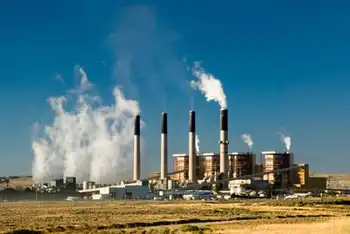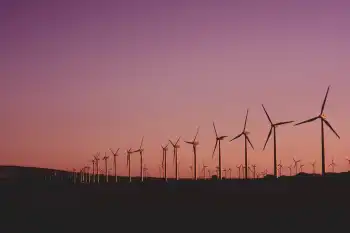China still wary of industry CO2 cuts
At the unveiling of new research by Dutch renewable energy consultants Ecofys and China's Energy Research Institute, an influential think-tank under the National Development and Reform Commission, climate officials said reining in carbon emissions from the country's industrial sectors would be crucial.
"Sectoral emissions cuts are an important part of dealing with climate change. For China, they are the main focus of reducing greenhouse gases," said Jiang Zhaoli, director of international cooperation at the NDRC's climate change office.
But while China appears ready to agree in principle with sector targets, its negotiators are still holding out for more concrete financial support from industrialized nations, and they are unlikely to agree with EU attempts to impose absolute cuts.
"The issue is whether developed countries can provide help, including technology transfers, that will allow these industries to improve their ability to take action to reduce greenhouse gas emissions," said Lu Xuedu, vice-chairman of China's National Climate Office.
The first phase of the Kyoto Protocol is set to expire in 2012 and the United Nations hopes to wrap up negotiations on a new global climate change agreement at the end of this year in the Danish capital Copenhagen.
Industrialized nations are trying to persuade developing countries like China — now believed to be the world's biggest source of greenhouse gases — to make more substantive commitments to reducing emissions, and the EU has already proposed reforms to the existing system known as the clean development mechanism.
The CDM allows developed countries to meet their greenhouse gas targets by investing in clean energy projects in the developing world, which are granted tradable U.N.-backed offsets called "certified emission reductions" or CERs.
CDM projects launched in China have been responsible for around 60 percent of the total CERs produced under the scheme, prompting opponents to accuse China of hitching a "free ride" from the system.
The EU has also described the majority of projects as cheap and ineffective "low-hanging fruit" and it is calling for a new approach aimed at entire industrial sectors rather than single projects.
The big bone of contention will be the "benchmark," or the degree to which industrial sectors in China and other developing countries will be forced to make cuts, said Magnus Gislev, first secretary for the environment with the European Commission delegation in Beijing.
The EU is proposing absolute targets that will commit Chinese industry to specific CO2 emission volumes per unit of output. China prefers "relative" targets in which it will commit to percentage reductions in emissions.
In an effort to push China to bring more of its own resources to bear in the fight against climate change, the proposed EU scheme will only reward those sectors that achieve reductions above and beyond national targets.
The EU is also hoping to establish the sectoral CDM system as a stepping stone to a global cap-and-trade system to be established by 2020, said Gislev, another cause of concern for China.
Related News

N.W.T. green energy advocate urges using more electricity for heat
HAY RIVER - A Northwest Territories green energy advocate says there's an obvious way to expand demand for electricity in the territory's South Slave region without relying on new mining developments — direct it toward heating.
One of the reasons the N.W.T. has always had some of the highest electricity rates in Canada is that a small number of people have to shoulder the huge costs of hydro facilities and power plants.
But some observers point out that residents consume as much energy for heat as they do for conventional uses of electricity, such as lighting and powering appliances. Right now almost…




